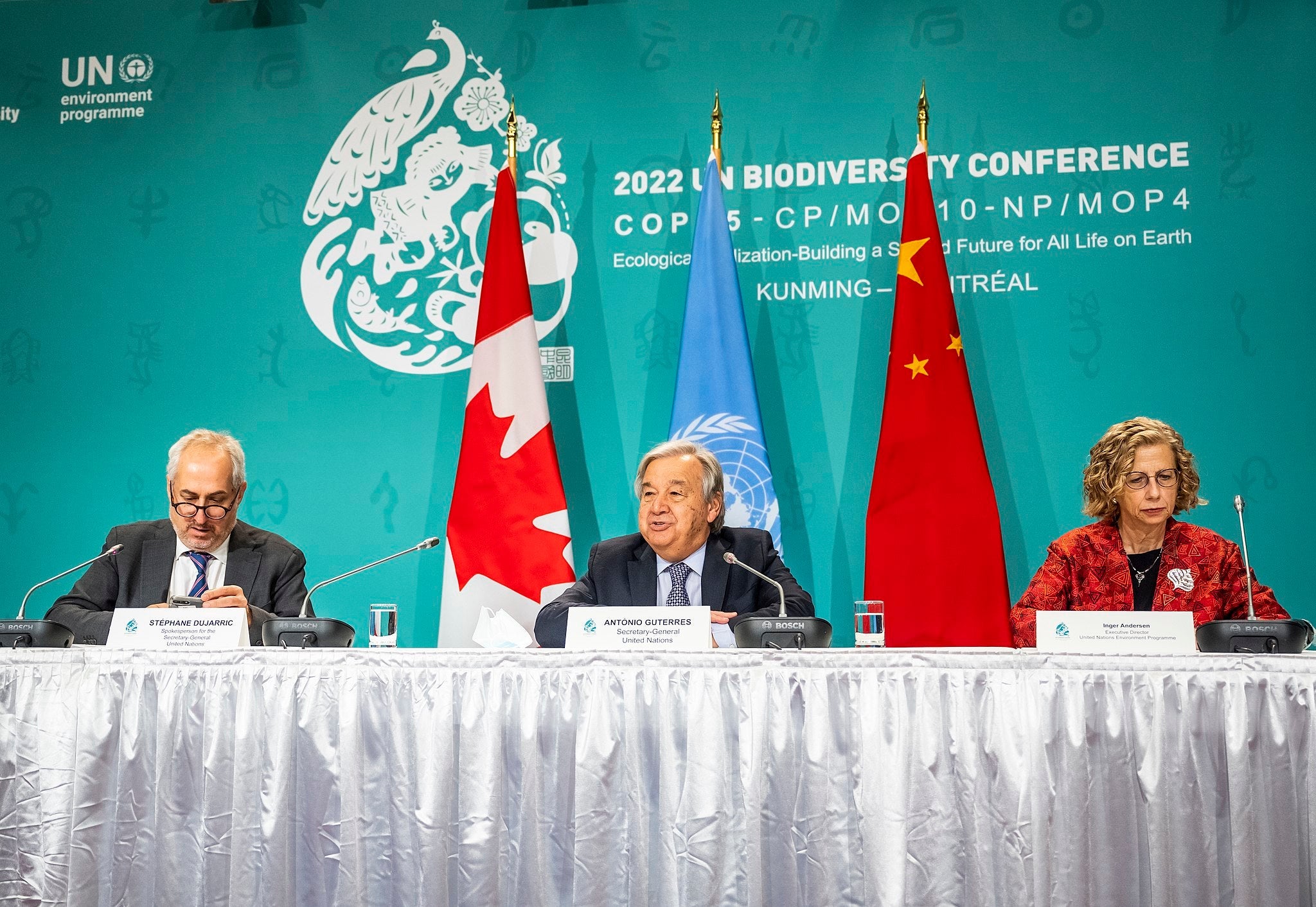Advancing integrated governance for health through national biodiversity strategies and action plans

You are invited to join us on September 6th at 9:00 am EDT for an organized discussion with the authors of The Lancet Comment, Advancing integrated governance for health through national biodiversity strategies and action plans. Please add your name to the guest list here to register.
In the lead-up to global biodiversity and climate meetings, Visiting Scholar on Planetary Health Policy Elizabeth Willetts and Assistant Professor of Nutrition and Planetary Health Chris Golden at Harvard T.H. Chan School of Public Health have joined co-authors to call attention to the importance of adding health expertise into national biodiversity strategies and action plans (NBSAPs) to protect future generations and improve health equity.
In a new commentary published in The Lancet, the authors provide recommendations for policymakers to jointly address ecosystem and public health at the national level, creating more opportunities to help tackle the interconnected challenges of climate change.
The authors’ recommendations include:
- Better coordinating funding for ministries of environment and ministries of health to tackle the connections between biodiversity and health.
- Expanding consideration of the role of biodiversity in public health such as linking plans for mental health, nutrition, non-communicable and communicable disease control, and childhood development to national biodiversity strategies.
- Using a checklist for policy coordination on biodiversity–health connections to assist governments and institutions to jumpstart collaborative work.
- Coordinating strategies between local, subnational, and national governments to address climate change, environmental concerns, and health issues at the same time, to respond to converging risks and to maximize resources.
- Recognizing and aligning with the Indigenous determinants of health, which are based on interconnection with nature, and the World Health Assembly resolution in 2023 on the Health of Indigenous Peoples.
- Establishing evaluation processes to assess progress to address biodiversity–health interlinkages in implementation.
- Recognizing the human right to a clean, healthy, sustainable environment and its connection with the right to health, specifically, through educational curriculums.
- The health sector recognizing its own contribution to ecosystem and biodiversity loss, and mobilizing to identify, quantify, and tackle its adverse impacts.
- Implementing key targets in the Kunming-Montréal Global Biodiversity Framework related to health outcomes and going beyond them to establish stand-alone national targets specifically on biodiversity–health interlinkages.
Co-authors come from both health and environmental institutions around the world, such as Conservation International, Inter-American Institute for Global Change Research, Canadian Association of Physicians for the Environment, Thailand Environment Institute, Centre for Justice, Governance and Environmental Action, The George Institute for Global Health, World Medical Association, World Wildlife Fund, and the University of Nairobi.
Read: https://www.thelancet.com/journals/lancet/article/PIIS0140-6736(23)01431-9/fulltext


